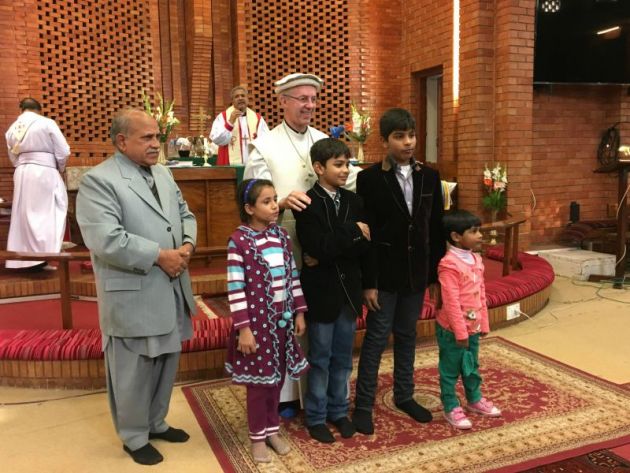Pakistan court acquits 112 in arson 'blasphemy attack' case against Christians

A Pakistani anti-terrorism court has acquitted 112 individuals suspected of taking part in the 2013 burning of 150 Christian homes and two churches in the Lahore's Josep Colony the type of attacks that members on minority religions can face.
In March 2013, a crowd of 3,000 enraged Muslims burned more than 125 homes in Josep Colony after hearing that t a local Christian man, Sawan Masih, had made derogatory remarks about the Prophet Mohammad, Reuters reported.
No one was killed in the incident but the properties of the mostly destitute Christians living in the neighborhood were severely damaged. Two churches and dozens of Bibles were also desecrated in the attack.
Ghulam Murtaza Chaudhry, the lawyer defending the suspects, stated that the suspects were acquitted because of a lack of evidence, Jurist.org reported.
Chaudhry stated the testimony of the plaintiffs was inconsistent and they could not identify those accused.
CHRISTIAN ROAD SWEEPER
Sawan Masahi was a road sweeper in his late twenties and he told police after his arrest on blasphemy charges that the real reason for the blasphemy allegation was a property dispute between him and a friend who spread the rumor.
In Pakistan, conviction under the blasphemy laws can carry a mandatory death sentence.
Masih has appealed against the death sentence imposed on him in 2014.
Critics of Pakistan's blasphemy laws say they have long been used by individuals and religious groups to settle disputes.
In January, the Pakistani Senate's human rights panel said it would debate how to prevent the country's blasphemy laws being applied unfairly.
This is the first time in decades that any parliamentary body has considered a formal proposal to stop the abuse of the blasphemy laws.
Pakistan's National Commission for Justice and Peace reported that a total of 21 Hindus, 187 Christians, 494 Ahmedis, and 633 Muslims had been accused under the blasphemy law between 1987 and 2014.
Human rights lawyers says the law can trigger violence based on fighting blasphemy on frequent occasion.
In 2014 Tashid Rahman, a defense lawyer and human rights activist, was shot and killed after defending Junaid Hafeez, a university professor who has accused under the blasphemy law by student groups.
Blasphemy laws were first introduced in the Indian subcontinent by its British colonial rulers, says a report by the Center for Research and Security Studies in Islamabad.
Before that, orthodox Islamic jurisprudence was briefly enforced during Mughal rule on the subcontinent but history is silent if there were any blasphemy laws prevalent at that time.
Communal tensions between Hindus and Muslims before the partition of the subcontinent backed by political interests of different groups, including colonial rulers, were the main reason behind enactment of blasphemy laws.
More than 96 percent of Pakistan's 202 million people are Muslims, of who up to 90 percent are Sunnis. Those following other faiths including Christians, Hindus and Ahmedis.